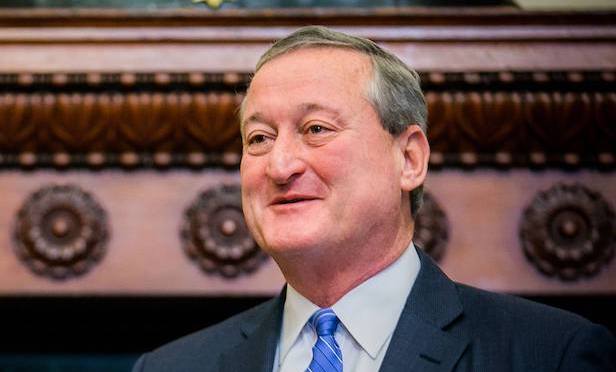PHILADELPHIA—The City Council's approval of a $5-billion 2020 budget will have the city spend additional capital to fund infrastructure improvements, quality of life initiatives and economic development efforts.
Philadelphia Mayor Jim Kenney praised the City Council for its passage of the budget last Thursday and the city's five-year-plan. “We applaud the City Council for today's vote on a spending plan that represents the priorities of the residents of Philadelphia,” Mayor Kenney said. “Whether it be increasing equity in our neighborhoods, boosting affordable housing, improving street repairs and paving, or tackling the scourges of opioids and gun violence—this budget shows that our Administration and City Council are addressing the biggest challenges facing Philadelphia.
In addition to the passage of the Fiscal 2020 Operating and Capital Budgets, the City Council overwhelmingly approved a plan to build a $60-million liquified natural gas facility in Southwest Philadelphia.
The proposed Passyunk Energy Center will be a public-private partnership between city-owned Philadelphia Gas Works and Conshohocken-based Liberty Energy Trust, according to published reports.
Some of the highlights of the budget and five-year plan include:
• $1.2 billion in general fund contributions to the School District of Philadelphia over five years.
• $30 million over five years in additional investments to support the “Philadelphia Roadmap to Safer Communities,” the anti-violence initiative released in January.
• $36 million over five years in new investments to support the work of the Philadelphia Resilience Project, the citywide emergency response focused on Kensington and surrounding neighborhoods at the epicenter of the opioid crisis.
• More than $200 million over six years for street resurfacing, to reach the goal of resurfacing and paving 131 miles annually by FY23.
• $3.25 million over five years for cleaning on commercial corridors, and grants for community development corporations to revitalize neighborhood commercial areas.
• More than $80 million to address the city's affordable housing needs.
• Gradual reductions in the Wage and Business Tax rates to make Philadelphia more competitive and spur job growth. The reductions represent a projected $136 million of foregone revenues from FY20 through FY24, an investment in the city's economic growth.
• The first-ever contribution to a Rainy-Day Fund ($34.3 million in FY20) to protect the city in case of an economic downturn.
• An increase in the Homestead Exemption to $45,000 from the current $40,000, to mitigate the impact of rising property values. This change means that for a residential property owner with a home at the median value of $129,700, the Homestead exemption will lower their property tax bill by $630, rather than $560 under the current exemption.
The Homestead change was accompanied by an amendment to the budget that increases the city's contribution to the school district by $8.4 million in foregone revenue. This gives increased relief to residential property owners, while at the same time ensuring that the school district's own finances are not affected, city officials stated.
© Touchpoint Markets, All Rights Reserved. Request academic re-use from www.copyright.com. All other uses, submit a request to [email protected]. For more inforrmation visit Asset & Logo Licensing.








